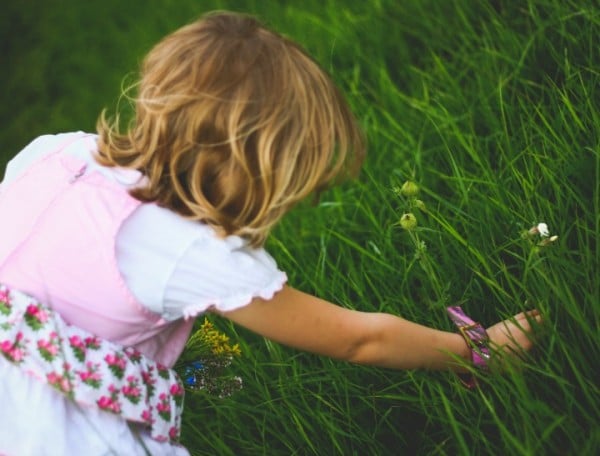
In a new book On Happiness: New Ideas for the Twenty-First Century, oncologist and writer Dr Ranjana Srivastava writes about her experience on the cancer ward and where she finds happiness
After only our fourth meeting, she relays to me that she is reconciled to death but will fight until the last to preserve quality of life. This is why she declined chemotherapy for cancer diagnosed at an advanced stage – she chose to spend her remaining days with her daughter and husband.
They have taken her to every local beach and some far away ones, and every playground they can think of, each photo of the event annotated with a special message. ‘The volunteers offered to help create memorabilia but I want my daughter to know that I did this all by myself. Although, it will never replace all the sandwiches I won’t make and the assemblies I won’t attend.’
Like Debrief Daily on Facebook.
She says, ‘I know that I won’t be here to see her start school in a few months. I have spoken to her teachers and I just have to trust that everyone else, the whole school, will be the mother she won’t have. And of course, she has a wonderful dad. She will be in good hands with him’.
At this, I choke, surreptitiously pinching the skin of my hand to remain steadfast. I remind myself that an observer like me is not entitled to subsume her grief: it is not etiquette and moreover, it feels self-indulgent.
But of course, I too have a little girl like my patient’s who is turning five. She too starts school next year and we have been attending orientation, her eyes filled with wonder that suddenly she will possess dozens of new friends, a brand new school uniform and the same blue hat that her big brother won’t let her borrow.
Just yesterday we picked out a pink lunch box and a matching pink water bottle and made a list of foods she can take to school. ‘I guess you can’t fill the fruit section with chocolate buttons’, she observed before declaring, ‘My teacher will know, she just will’.
I managed to make it to every single orientation class, never even entertaining the possibility that anyone else in our family, including her father or grandparents, might be interested in going. In the way of the all-consuming love a mother feels for her child, I did it all and did it willingly. And what fun we had there, I think, even as I ward off the thoughts – lest they magically appear on my forehead for my patient to read.
But the truth is that I didn’t have to stop at the side of the playground to clutch my hurting side and I didn’t have to fish for the omnipresent bottle of morphine to rescue me before I could move again. And when the children played catch, I joined in, rather than sitting on the bench while my little girl explained to strangers that her mummy needed all the oxygen she could to keep her breathing. My interview with my daughter’s teacher was about purely benign, happy things. I did not need to entrust her with the heartbreaking responsibility of being my child’s surrogate mother.
‘I am sorry,’ I say, contritely. ‘I am sorry that you are so ill. It’s not fair.’
‘What can you do? It was meant to be,’ she replies.
‘How are you doing?’ I ask her husband. He has given up work to care for her.
‘I feel sad for the life that we won’t have. I had always thought we’d grow old together’. His eyes shine with tears. She holds his hand.
‘I am not afraid of dying’, she says. ‘I have a strong faith and I trust God is waiting for me. So while it’s a bit premature, heaven is a good destination’.
I find her poise enormously consoling. She smiles at her husband. I can’t help thinking that it is the kind of beautiful, wholesome, comforting smile that will see him through his worst days. It is a smile I have seen before, on the lips of patients who somehow drag themselves out of their existential suffering to think of others. Although we set up another appointment, she says goodbye, articulating what we both suspect. ‘If I don’t see you again, thank you for being part of my life. You did your best. You guys have a tough job.'
Her grace leaves me speechless. She dies in the week leading up to Christmas. Her husband calls to say that she went peace- fully, even willingly.
On days like this, the word happiness loses its meaning for me. Everything appears hollow. Uncouth, unfair, and unacceptable in the face of the loss of a young woman whose time had not yet come. I mourn for the little girl who lost her mother far too early but feel guilty when I am unable to imagine what that must be like.

Also, I feel the pangs of loss even momentarily imagining being afflicted by an illness that might pull me away from my own children. On these days, happiness is a mirage. I can’t fathom how it can be so ephemeral and possibly refuse to land in the lap of a devoted young mother.
The consideration of happiness then leads to the perennial question of who deserves to be happy. If we make our own happiness, then what did my young patient do to ‘unmake’ hers? In all the time I knew her she continued to make room for the happiness of others while watching her own being tugged away. On days like this, I feel satisfied defining happiness as merely avoiding the patient’s fate. To expect anything else would be utterly selfish.
On other days, thankfully, these searing moments recede when I see genuinely uplifting things. A patient whom no-one expected to outlive 10 months returns for a 10-year check up, his once-tender-aged children now grown up, driving him to appointments, and solicitously asking questions about their dad’s health. ‘They spoil me,’ he beams.
One woman wrenched from the throes of psychotic depression, convinced that the spectre of breast cancer would forever haunt her life one day holds a healthy baby in her arms. Cradling him as she undresses for an examination, I watch his innocent and placid face entirely unaware of his mother’s battle.
‘He is adorable’, I say, handing him back. With a spark in her eyes where before there was only the dullness of tears, she says, ‘Doctor, I never ever think of my cancer any more. It’s wonderful, how he takes up all my attention!’
On days like this, I see happiness everywhere. The smiles of my patients, their relieved sighs, their stammered thanks and tentative hugs are the very essence of happiness.

These experiences also empower me to help my other patients across the chasm of doubt and pessimism that infects their lives as they confront their own illness. They say: ‘I need you to see the bright side for me because I can’t yet. But I feel reassured to hear you say that I’ll be okay.' Happiness, then, is being someone’s crutch when they are at their most vulnerable. It feels good to give.
A few times a year, I am humbled by an invitation to attend a patient’s funeral. Usually, they were people who carried their illness for a long enough time that we came to know each other beyond the confines of a clinical consultation. The sight of my children’s wobbly artwork adorning the walls proved a natural and welcome bridge to discussing the things that mattered most in life.
Many people told me that despite feeling overwhelmed and frightened by cancer, they made sense of it by realising every precious moment with their loved ones. They proposed, married, reconciled, attended graduations, held their grandchild’s finger, surfed, walked, wrote letters and generally did all the things they had always known they should do. ‘Knowing I am dying makes everything look brand new,’ a man reflected.































































































